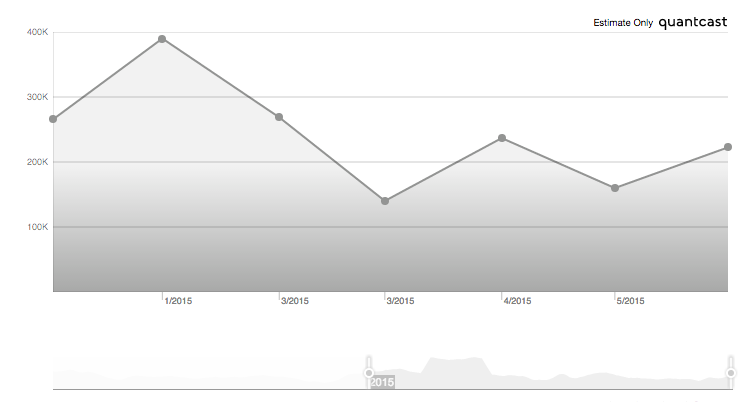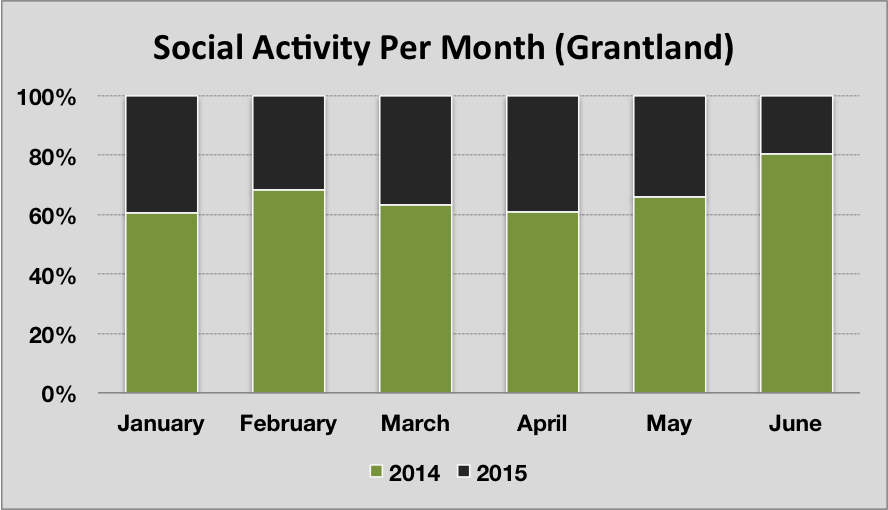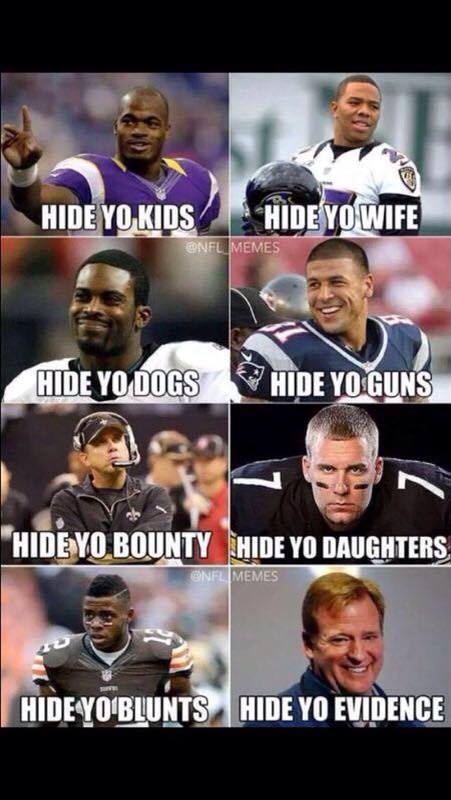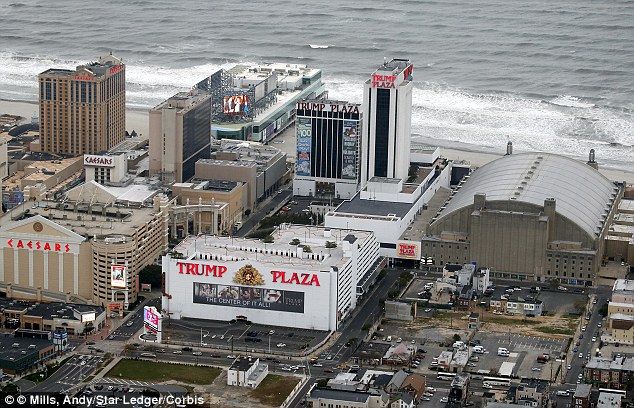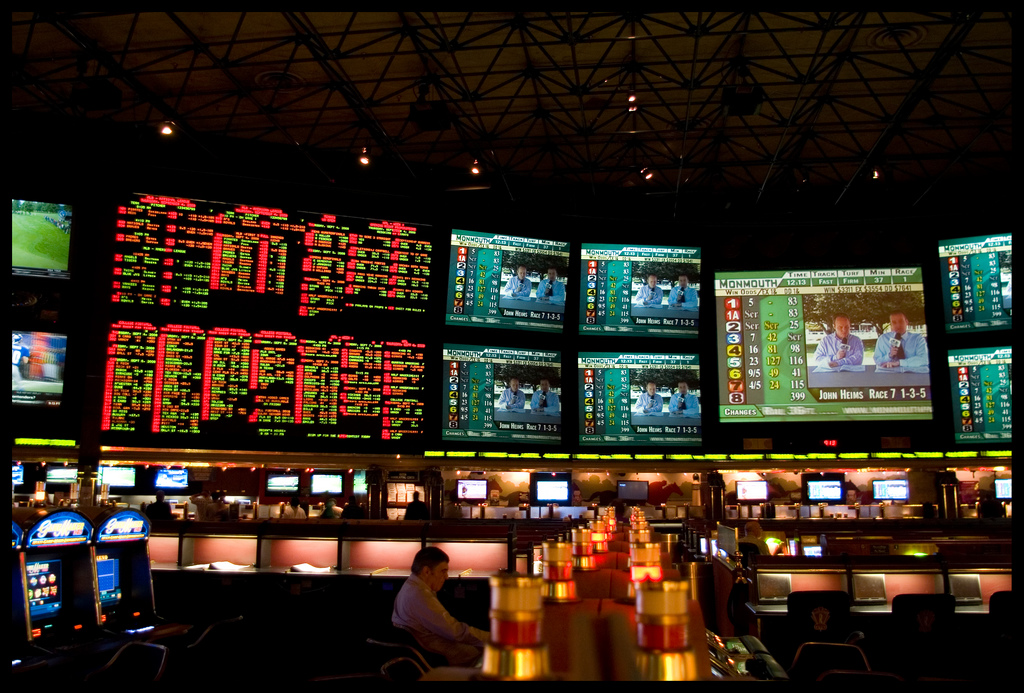An article last week on Deadspin caught my eye about what ESPN is going to do with Grantland.com. If you remember Grantland founder and Editor-in-Chief Bill Simmons was told his contract was not going to be renewed back on May 8th and effectively it was his last day at ESPN.
I’ve been reading Bill Simmons since he was writing for Digital Cities AOL back in 1999 and I followed him to Page 2 on ESPN to his penultimate move when he and ESPN created Grantland. A cadre of writers came on board, some well known others who would become well known after writing on the site for a while.
So the question Deadspin asked was what will happen to the site, but I’ve been curious what’s happened to the site since Simmons was fired. Here is what Alexa and Quantcast show:
Clearly traffic has dipped since Simmons stopped working on the site, but part of that might be seasonal. The NFL season ends in early February, and as the weather warms people spend less time thinking about sports, but that doesn’t fit what Grantland likes to write about. Bill Simmons is a huge NBA fan and writes about it extensively all the way through the playoffs which wrap up in June. Then there is the pop culture part of the site which covers May sweeps and summer movie season.
When I tried to compare the social engagement of Grantland, two things stood out.
- Social engagement on the site dropped 51% in the first 6 months of 2015 as compared to the first 6 months of 2014.
- Since Simmons stopped working on Grantland on May 8th social activity is down 53%.
So does this spell the end of Grantland? I hope not, there are terrific writers there and they’ve been a big contributor to the resurgence of podcasts, but as Deadspin notes if the writers depart when their contracts are up, they don’t have the same momentum heading into 2016 as they did heading into 2015.


